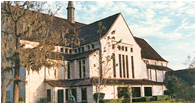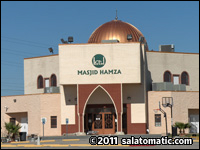
What then will we do?
Having considered the Charter’s declaration of beliefs, we now examine the possibilities of living into our call to do justice.
Therefore, we will:
- Seek ways to do justice through our church programs and ministries, prayerfully asking God’s guidance in helping us to recognize systemic structures of injustice and granting courage to respond;
- Step with love into the gap to speak for those who have no voice;
- Work through our ministries to remove barriers and social conditions that perpetuate injustice, seeking to create an environment where all may live in fullness and wholeness;
- Pledge to continue to be in respectful conversation with those whom we differ, and to explore the sources of our differences with the goal of reconciliation;
- Open our hearts and minds as we seek to love all persons with kindness and agape love;
- Strive to walk humbly with our God, prayerfully asking the Holy Spirit to guide us;
- Honor our sacred worth of all persons as we continue to seek the mind of Christ and to do the will of God in all things.
The call of the Charter calls us to look at ourselves, our prejudices, our timidity, and our shortcomings. The Charter calls us to call upon God for strength and guidance, to remove the scales from our eyes and then to have the courage to do justice. In the context of the Charter doing justice is not a singular action. We are called to be the community of the faithful, to trust one another to not just to learn and study, but to then take action with other believers to bring about justice. Justice is not just about finding what is wrong with the world, but is also about finding solutions and then taking action to alleviate those injustices. It is not about coming up with a liberal or conservative agenda. It’s about coming up with Christian solutions that are based on our understanding of our Christian principles. It’s recognizing that solutions to injustice are complex and that there are no easy answers. At every step we are called to ask, “what is the roll of the Church in this issue and more importantly, what is God’s will.”
How can we solve the issue of poverty if we do not offer the love of Jesus Christ to them, get to know them personally, build relationships and invite them into our congregations. We know that many in our culture have no spiritual connections and are often lost in the complexities of life. And what does it say to persons when we are not willing to be inclusive and offer full participation in the life of the church through the covenant of marriage and ministerial ordination. And does the situation ever arise when it is time for brothers and sisters in Christ to decide to divorce one another when the disagreements on justice are too divisive, thereby limiting the body’s ability to effectively address other issues of justice.
Issues of justice have elements of relationally. It is therefore important to build relationships with those persons in power whether it be elected or appointed officials, business groups, or civic groups. These persons and organizations are often the groups that hold power over those who are marginalized. And they often are reluctant to relinquish their power whether it is a result of their own conviction or that they are merely the puppet of others. Justice cannot always be achieved in an atmosphere of harmony. Throughout history we have seen that justice has a price for those who advocate for those who are oppressed. But it can always be done in an atmosphere of love. Love is power and sometimes can be contentious.
God calls us to do justice and we believe that God’s will towards justice will prevail. And we must remember that justice will prevail in God’s time, not ours. But I believe that it will not occur at all until the faithful join in the struggle and are willing to pay the price.
One last thought. When someone says something so outrageous concerning justice issues that it catches you off guard and you know you should say something, but you don’t know what, says this, “I don’t agree. That goes against my Christian convictions.”
Epilogue
For Courage to Do Justice
Lord open my eyes that I may see the needs of others;
Open my ears that I may hear their cries;
Open my heart so that they need not be without succor;
Let me not be afraid to defend the weak because of the anger of the strong,
Not afraid to defend the poor because of the anger of the rich.
Show me where love and hope and faith are needed,
And use me to bring them to those places.
And so open my eyes and my ears
That I may this coming day be able to do some work of peace for thee.
Amen*
*The United Methodist Hymnal #456
As always I encourage your comments and hope that you will develop conversations and actions in your classes, bible studies and with friends on what God is calling us to do in the area of justice. In the next few months our TMO (The Metropolitan Organization) will be offering “pressures on families” to find leaders interested in issues of justice and the issues affecting families in our community. We will also be discussing how the Justice Charter informs and impacts “pressures on families”.
 Mission Bend United Methodist Church
Mission Bend United Methodist Church Mission Bend United Methodist is a partner with TMO in our collaborative efforts to bring stability to families in Alief. The following is a brief description by Carrie Leader, associate intern, of the churches efforts in Alief. We are proud of their continuing efforts to love God and love Neighbor. Please pray for their continued efforts.
Mission Bend United Methodist is a partner with TMO in our collaborative efforts to bring stability to families in Alief. The following is a brief description by Carrie Leader, associate intern, of the churches efforts in Alief. We are proud of their continuing efforts to love God and love Neighbor. Please pray for their continued efforts.


















